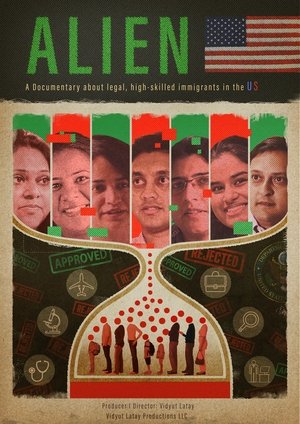
Alien: American Dream Denied(2023)
A Documentary about legal, high-skilled immigrants in the US
Advances in science and technology in America depend heavily on high-skilled legal immigrants from across the globe. But our current immigration system takes an inhumane, unfair, and unwise approach toward these immigrants and their families. Alien: American Dream Denied spotlights the emotional journey of these high-skilled, documented immigrants as they seek permanence in a country that benefits from their talent, but denies them a home.
Movie: Alien: American Dream Denied
Top 10 Billed Cast
Video Trailer Alien: American Dream Denied
Similar Movies
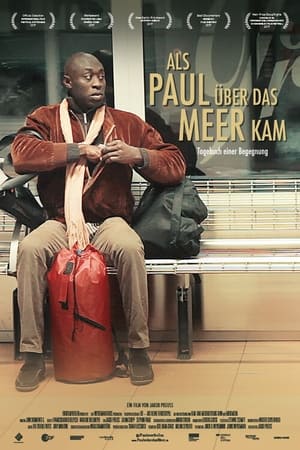 7.8
7.8When Paul Came Over The Sea(de)
An unusual friendship in an agitated political context.
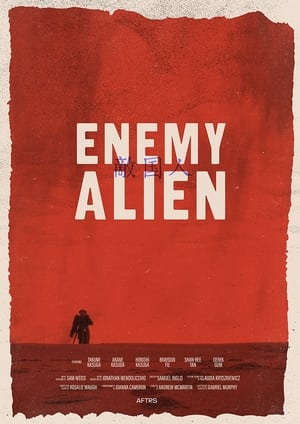 10.0
10.0Enemy Alien(en)
A poetic retelling of the experiences of Joseph Murakami, a fourteen-year-old boy from Darwin, who is summarily rounded up and interned by his government on the basis of his ethnicity, leaving wounds unhealed to this day.
Cohen's War(en)
An hour-long portrait of Canadian immigration lawyer, M. Lee Cohen, renowned for his work with refugees. The film follows his representation of Sonya Pecelj and Vladimir Zalipyatskikh. The first case follows a young woman, Sonya Pecelj from Kosovo, who seeks sanctuary for more than a year in a church; the second case follows a Russian sailor who dives off a ship in Halifax Harbour to escape virtual imprisonment by the Russian fish mafia.
 7.0
7.0Der grosse Kanton(de)
Is the solution to Switzerland's future to integrate Germany into the confederation? After all, like Michael Ringier, CEO of the Ringier media group, says, blithely ignoring all minorities, we're very close in culture and language. Oskar Freysinger takes out his guitar and sings his answer. Politicians from French-speaking Switzerland and Ticino think expanding will help the country survive. The former German foreign minister thinks the two countries' traditions are too different. The banker Oswald Grübel is worried about Germany's debts, although he'd be prepared to take over its assets. With serious interviews interspersed with gags (boat people on Lake Constance, the last Habsburger as a peasant), Giaccobbo gathers off-the-cuff reactions which reveal a lot about the different mentalities. The movie laughs at preconceived notions, redefines neutrality and reflects on what designates a nation. Switzerland, which loves to teach the world a lesson, will soon helvetize the planet, oder?
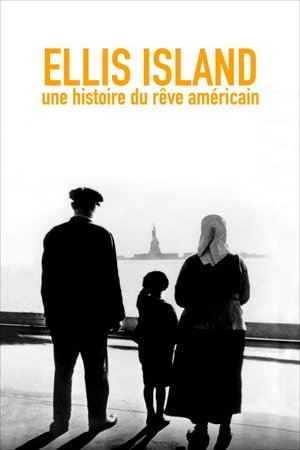 4.5
4.5Ellis Island, une histoire du rêve Américain(fr)
In 1892, Ellis Island, in New York Bay, became the main gateway to the United States for immigrants arriving increasingly from Europe. The story of immigration to the United States from 1892 to 1954, an enthralling polyphonic narrative that embraces both small and great history.
Puente de la Costa Sur(en)
Puente de la Costa Sur, winner of the San Francisco Foundation 2004 Community Leadership Awards (John R. May Award) - for its creative, grassroots efforts to provide education, social justice advocacy, direct services, and community connections enabling immigrant men in rural San Mateo County to improve their living and working conditions
E4FC - 2013 San Francisco Foundation Community Leadership Awards(en)
The San Francisco Foundation presents 2013 Community Leadership Awardee, Educators for Fair Consideration (E4FC), with The San Francisco Foundation Award, made to an organization demonstrating exemplary commitment to improving human relations in the Bay Area. E4FC provides direct support to and advocacy for highly motivated, college-bound undocumented students who had come to the United States as children and wished to remain. They are a leader in the field of immigrant work, providing youth tangible support and the space for them to tell their own story. As a result, E4FC's work is an essential part of the DREAMers movement catapulting the organizations role as a leader in both the Bay Area and as a national model in supporting and empowering immigrant youth. www.sff.org/cla
 0.0
0.0At Tourkovounia(el)
Greek internal migrants in Athens, after the Greek Civil War colonize the tops of the Tourkovounia hills.
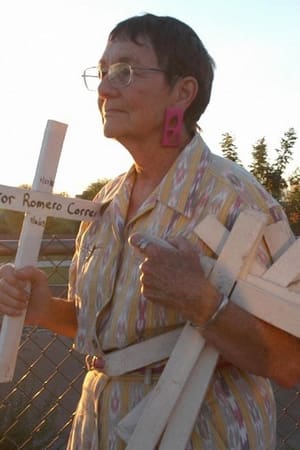 0.0
0.0On the Road with Mary(fr)
Why don't we do something to ease the suffering of the poor, the excluded? Because we live in fear of "the other," the stranger. Filmed a few months before the 2004 presidential election, On the Road with Mary is a gripping view of an America living in fear. From a miserable neighbourhood in Detroit ravaged by crack and violence, to the militarized border with Mexico, this potent road movie exposes the unbearable other side of the American Dream.
 4.9
4.9Visions of Europe(en)
Twenty-five films from twenty-five European countries by twenty-five European directors.
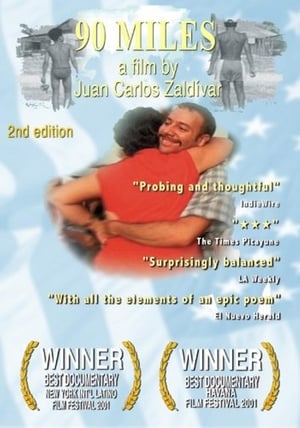 5.0
5.090 Miles(en)
Having grown up within the Cuban Revolution, in 1980, Juan Carlos Zaldívar was a 13-year-old "pioneer" jeering in the streets at the thousands of "Marielitos" leaving the island by boat for the United States. Within weeks, he was a Marielito himself, headed with the rest of his family for a new life in Miami. Now a U.S.-based filmmaker, Zaldívar recounts the strange twist of fate that took him across one of the world's most treacherous stretches of water in 90 Miles, a new documentary having its broadcast premiere on PBS's acclaimed P.O.V. series in the summer of 2003. As related by Zaldívar in the intensely personal and evocative 90 Miles, arrival in South Florida is only the beginning of the family's struggles to comprehend the full meaning of their passage into exile. What follows is an intimate and uneasy accounting of the historical forces that have split the Cuban national family in two, and which shape the passage of values from one generation to the next.
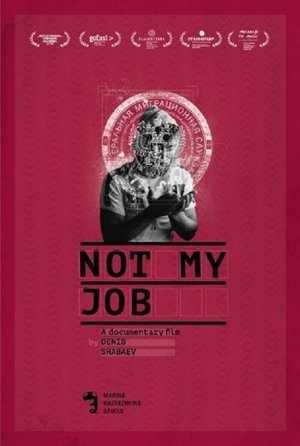 6.0
6.0Not My Job(ru)
The documentary follows the life of Farroukh, a young Tajik immigrant who lives in Moscow outskirts with his family and does odd jobs in dreams of becoming an actor.
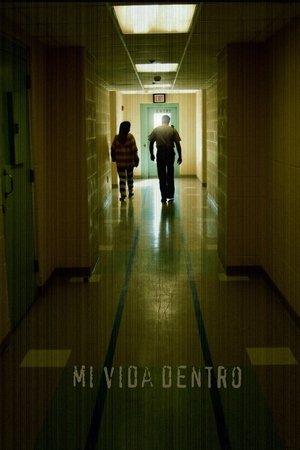 6.9
6.9My Life Inside(es)
Rosa is a Mexican woman who, at the age of 17, migrated illegally to Austin, Texas. Some years later, she was jailed under suspicion of murder and then taken to trial. This film demonstrates how the judicial process, the verdict, the separation from her family, and the helplessness of being imprisoned in a foreign country make Rosa’s story an example of the hard life of Mexican migrants in the United States.
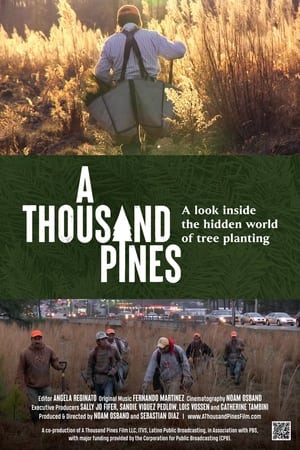 0.0
0.0A Thousand Pines(en)
In this tale of labor and family that shines a light on the precarity of temporary work visas, Raymundo Morales leads a crew of workers who have to make the challenging decision to leave their families in rural Mexico to plant commercial pine forests in the United States.
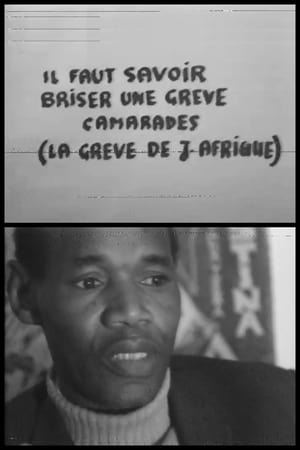 0.0
0.0Grève à Jeune Afrique(fr)
After two months of a hard-fought strike, accompanied by a day-and-night occupation of the premises, Jeune Afrique's workers were the victims of a court order authorizing their CEO, Bechir Ben Yahmed, to have them removed by the police. If they resisted, they risked falling foul of the law against rioters. To avoid the African comrades being deported from France, the strikers decided to leave. But before leaving, they organized a demonstration of solidarity with hundreds of journalists from the traditional and revolutionary press.
Tarajal: Desmontando la impunidad en la frontera sur(es)
The events that took place at the beach of El Tarajal in Ceuta (Spain) in February 2014 - the killing by the border police of 15 people who were trying to reach the Spanish coast - are an example of how the police force can violate the laws of its own country and international conventions with total impunity. The worst part is that this violation of human rights is protected by the Spanish Ministry of Interior itself, which hinders any effective action by the prosecution. For this reason, the civil society plays a fundamental role in revealing the facts. This is where the figure of collective complaints (DESC Observatory and the association Coordinadora de Barrios) steps in.
Narratives of Modern Genocide(en)
Narratives of Modern Genocide challenges the audience to experience first-person accounts of survivors of genocide. Sichan Siv and Gilbert Tuhabonye share how they escaped the killing fields of Cambodia, and the massacre of school children in Burundi. Mixing haunting animation, and expert context the film confronts our notion that the holocaust was the last genocide.
